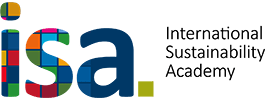The 17 goals for sustainable development
In September 2015, heads of state and governments from all over the world signed the Agenda 2030 on Sustainable Development. The key part of the agenda is the 17 Sustainable Development Goals, (abbreviated to SDGs). By the year 2030, hunger and extreme poverty in all their forms are to be eliminated for good, equality of the sexes reestablished and clean water is to be accessible to all people all over the world. Other goals are for example the reduction of CO2 emissions or minimization of food waste and thus make it quite clear what it means to change consumption patterns. In addition, SDGs also focus on global common resources such as the protection of the oceans. The Agenda 2030 expressly demands from the community of states that the focus is on the weakest and most vulnerable and that they “leave no-one behind”.
The resolution applies equally to all countries of the world. If we want to attain these ambitious goals then we must cooperate at international level. The fundamental principles for this are tolerance, openness and understanding for other cultures. From those taking part we expect that they share these values and that they wish to broaden their range of experiences. It is not a requirement, in fact it is hardly possible, to carry out a project which contributes to the attainment of all SDGs to the same extent. We understand the Agenda 2030 as a joint set of values that binds us together, regardless of origin. As a result, our participants put the most diverse projects into practice which nevertheless all have one common aim: They make out future more sustainable.
Detailed information on SDGs can be found on the United Nations Website.

